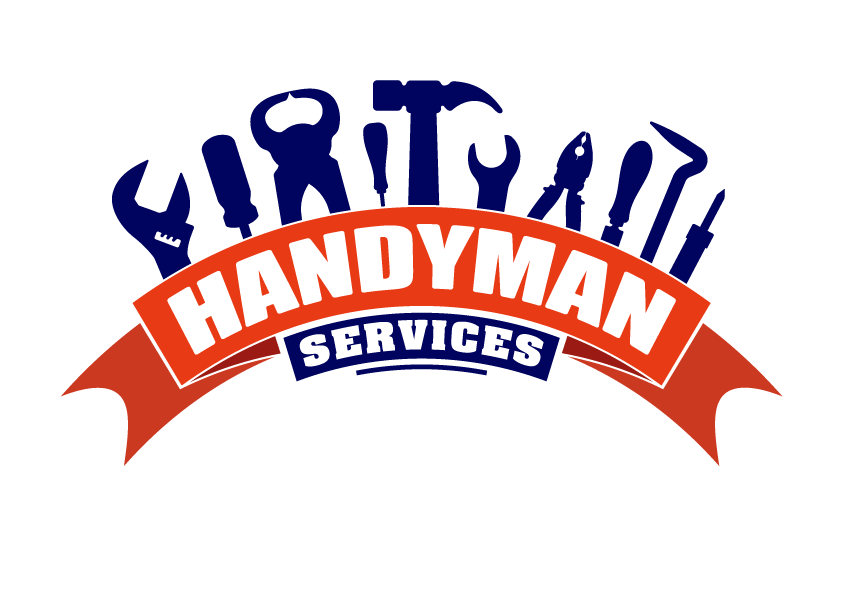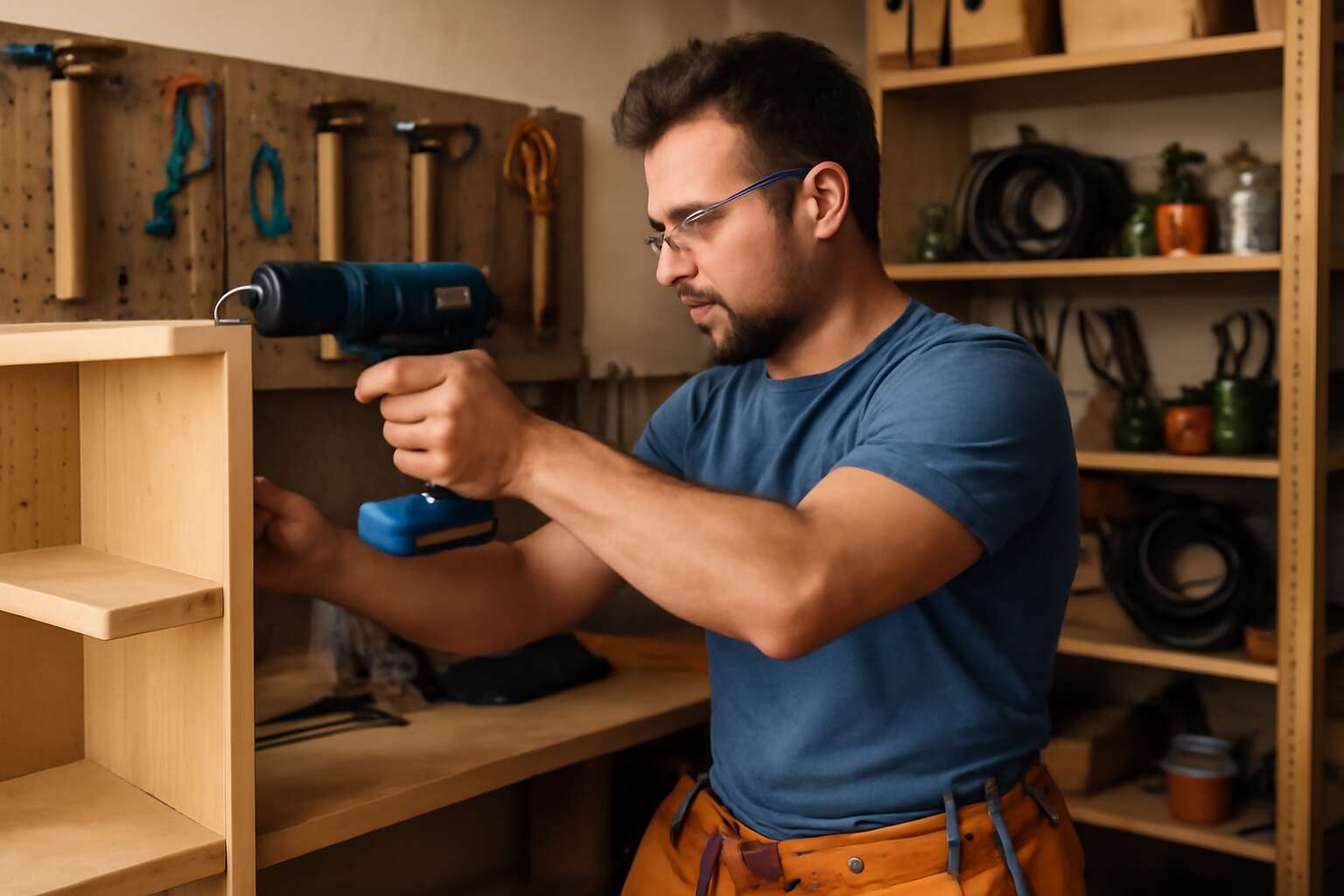Understanding Handyman Courses
What Is a Handyman Course?
Many aspiring tradespeople underestimate the transformative power of a handyman course. It’s not just about acquiring skills; it’s about unlocking a world of opportunities in a competitive market. A handyman course offers a comprehensive pathway to mastering essential trade techniques, blending practical knowledge with real-world applications.
But what exactly is a handyman course? At its core, it’s a specialised training programme designed to equip individuals with a versatile skill set. From basic carpentry and plumbing to electrical repairs, these courses cover a broad spectrum of maintenance tasks that are always in demand. Whether you’re looking to start your own business or enhance your existing skills, a handyman course provides the tools needed to succeed.
Most courses include modules such as:
- Health and safety standards
- Tool handling and maintenance
- Problem-solving techniques
Enrolling in a handyman course isn’t just about learning; it’s about stepping into a profession with confidence and competence, ready to tackle any task that comes your way!
Who Can Benefit from a Handyman Course?
In the shadowy corridors of the trades, a handyman course emerges as a beacon for those craving mastery over the unseen and the vital. It’s a sanctuary for individuals who seek to transform mundane skills into a livelihood rooted in resilience and independence. Whether you’re contemplating a career shift or yearning to hone your craft, a handyman course offers the tools to navigate the labyrinth of maintenance and repair with confidence.
Who can benefit from such a programme? The answer is as broad as the night sky. Aspiring entrepreneurs dreaming of their own handyman business, seasoned tradespeople aiming to diversify, or even passionate DIY enthusiasts seeking formal recognition—all find a home within a handyman course. These courses are designed to unlock a hidden potential, turning raw talent into professional expertise.
Moreover, a handyman course is perfect for those with a keen eye for detail and a desire to serve their community. It’s not merely about acquiring skills; it’s about stepping into a realm where practical prowess meets unwavering reliability. In this darkened world of constant demand for skilled hands, such training becomes an essential key to unlocking the door to a future filled with opportunity.
Types of Handyman Courses Available
When it comes to mastering the art of fixing, building, and maintaining, not all handyman courses are created equal. The world of handyman training is as diverse as a Swiss Army knife—each offering specialised skills tailored to different needs. From quick-fire workshops to comprehensive programmes, there’s a handyman course for every aspirant eager to turn practical know-how into a profitable venture.
For those who want to dive deep into the technicalities, there are in-depth courses covering electrical, plumbing, carpentry, and even tiling. Alternatively, beginners might prefer a more general handyman course that provides a broad overview of essential skills without overwhelming detail. Some programmes go the extra mile, offering certification that boosts credibility and marketability.
In addition, many courses are now blending traditional hands-on training with online modules—perfect for flexible learning. Whether you’re looking to enhance your existing skills or start fresh, understanding the different types of handyman courses available can be the first step toward transforming your passion into a profession!
Key Skills Taught in a Handyman Course
Basic Plumbing and Electrical Repairs
Mastering the art of basic plumbing and electrical repairs is often the cornerstone of a comprehensive handyman course. These skills transform a novice into a resourceful craftsman, capable of tackling everyday household issues with confidence and precision. From fixing leaky taps to rewiring a socket, the range of expertise gained is both practical and empowering.
Within a typical handyman course, students delve into essential techniques that ensure safety and efficiency. They learn to identify common plumbing faults, such as blocked drains or faulty pipes, and execute repairs that stand the test of time. Simultaneously, electrical modules cover fundamental wiring practices, replacing switches, and addressing minor electrical faults — vital skills for any handyman looking to broaden their service offerings.
To provide a clear pathway for learners, a typical handyman course might include:
- Understanding plumbing components and their functions
- Safe electrical wiring practices
- Tools and materials for repairs
- Diagnosing and resolving common household issues
By honing these key skills, participants emerge ready to handle a variety of basic repairs, making a handyman course an invaluable investment for those eager to develop their trade with competence and flair.
Carpentry and Woodworking
Carpentry and woodworking are fundamental aspects of any comprehensive handyman course, opening the door to a multitude of repair and renovation projects. These skills aren’t just about creating furniture—they’re about understanding the structural integrity of a space and being able to execute precise modifications. A handyman course often includes practical lessons on measuring, cutting, and assembling wood, ensuring learners develop confidence with a variety of tools and techniques.
In many programmes, students learn to craft custom shelves, repair damaged furniture, or even build small structures from scratch. The ability to work efficiently with wood and other materials can significantly expand a handyman’s service repertoire. A typical course might cover:
- Understanding different types of timber and their uses
- Safe operation of saws, drills, and other power tools
- Measuring and marking accurately for precise cuts
- Joining techniques and finishing touches for durability
Mastering carpentry and woodworking in a handyman course not only enhances technical competence but also fosters a craftsman’s eye for detail. These skills are vital for tackling everyday household repairs with both finesse and practicality—making a handyman course an essential investment for those aiming to elevate their trade.
Painting and Drywall Installation
Painting and drywall installation might not sound as glamorous as a blockbuster movie, but in the world of handyman courses, these skills are the true unsung heroes of home improvement. Did you know that a well-executed paint job can increase a home’s value by up to 5%? That’s no small potatoes! Mastering these techniques in a handyman course means more than just slapping on a coat of paint; it’s about creating flawless finishes and seamless wall repairs that can withstand the test of time.
In a typical handyman course, students learn the art of surface preparation, colour matching, and proper drywall repair methods. You’ll get hands-on experience with tools like taping knives, sanders, and sprayers—turning you into a veritable Picasso of plaster. The course also covers essential safety protocols, ensuring that your drywall installation projects are both beautiful and structurally sound.
By honing your skills in painting and drywall installation, you expand your service repertoire with confidence, tackling everything from minor touch-ups to complete wall renovations. Whether you’re patching up a hole or giving a room a fresh new look, these techniques are the backbone of professional handyman work, making the handyman course an investment worth every penny.
General Maintenance and Repair Techniques
In the bustling world of home improvement, versatility is king. A comprehensive handyman course doesn’t just teach you how to fix a leaky tap or hang a picture; it equips you with essential skills in general maintenance and repair techniques that keep properties in tip-top shape. Whether it’s patching a cracked wall or troubleshooting faulty wiring, mastering these fundamentals ensures you’re prepared for almost any challenge a homeowner throws your way.
One of the core aspects of a handyman course is developing a keen eye for detail and a methodical approach to repairs. Students often learn to identify underlying issues that might seem minor but can escalate into costly problems if left unaddressed. From understanding the intricacies of plumbing to electrical safety protocols, these courses cultivate confidence and competence in handling the unpredictable nature of property upkeep.
Often, the most valuable skills are acquired through practical exercises that simulate real-world scenarios. For example, students might follow a structured process such as:
- Assessing the problem thoroughly before starting work
- Selecting the appropriate tools and materials
- Executing repairs with precision and safety in mind
This hands-on approach ensures a well-rounded skill set that seamlessly integrates into your service repertoire, allowing you to approach general maintenance with the finesse of a seasoned professional.
Benefits of Taking a Handyman Course
Enhance Your Career Opportunities
Embarking on a handyman course isn’t just about acquiring skills; it’s about unlocking a realm of possibilities—an invitation to redefine your professional identity. In a market that values adaptability and practical expertise, the benefits of taking a handyman course extend far beyond the workshop. It offers a pathway to enhanced career opportunities, where each new skill becomes a stepping stone toward independence, stability, and mastery.
By investing in a handyman course, you position yourself as a versatile craftsman capable of tackling diverse projects. This versatility often translates into increased demand and higher earning potential. Whether you choose to work independently or within a company, the fundamental knowledge gained from a handyman course fosters confidence and credibility. It transforms common repairs into opportunities for growth, creativity, and meaningful human connection—traits that resonate deeply in a profession rooted in service and problem-solving.
Some of the most compelling advantages include the ability to diversify your skill set and appeal to a broader client base. Here’s how a handyman course can significantly enhance your career prospects:
- Developing specialised skills that set you apart in a competitive market
- Gaining the confidence to undertake complex projects independently
- Building a reputation rooted in quality workmanship and reliability
- Expanding your professional network within the trade community
Build Confidence in Performing Repairs
Stepping into the world of a handyman course is akin to unlocking a treasure chest of confidence. When you know you have the skills to perform repairs effectively, every task feels less daunting and more like an opportunity for mastery. This increased self-assurance is the cornerstone of a successful handyman career, transforming uncertainty into competence.
Taking a handyman course doesn’t just teach you how to fix things—it builds a resilient foundation of confidence that empowers you to approach each project with enthusiasm and clarity. Whether you’re repairing a leaky tap or restoring a worn-out wall, the knowledge gained ensures you handle each challenge with precision. This confidence often leads to better client relationships and a reputation for reliability in the trade.
Moreover, a handyman course equips you with a diverse toolkit of skills, allowing you to diversify your services and attract a broader client base. When clients see your expertise and assuredness, trust naturally follows. As you grow more confident in your abilities, every repair becomes a stepping stone towards professional excellence and personal satisfaction.
Start Your Own Handyman Business
The shadows of uncertainty often linger around the threshold of a potential profession, but a handyman course can serve as the lantern guiding you through the labyrinth. When you possess the skill to transform chaos into order, the power to start your own handyman business becomes less an aspiration and more an inevitable reality. With a solid foundation in repair techniques, you can carve out a niche in a marketplace hungry for dependable craftsmanship.
Embarking on a handyman course doesn’t merely equip you with tools; it unlocks the secret to independence, allowing you to forge your own path in a world that often prefers the shadows. Whether setting up your own enterprise or simply elevating your service offerings, the benefits of taking a handyman course are profound. It’s a gateway to not only professional autonomy but a chance to weave your own story into the fabric of the tradespeople’s guild.
Earn Higher Rates as a Skilled Professional
In a world where DIY videos make everyone a ‘handyman’ overnight, professional craftsmanship still reigns supreme—and commands a premium. Enrolling in a handyman course transforms your skills from mere “I can fix that” to “I can charge for this”. Skilled professionals who have completed a handyman course often earn higher rates because clients recognise their expertise and reliability. It’s simple: the more you master, the more you can justify charging top dollar for your services.
Moreover, a handyman course arms you with specialised knowledge that sets you apart from the amateurs. Whether it’s advanced electrical repairs or sophisticated carpentry techniques, these courses elevate your value in the marketplace. This specialised skill set not only boosts your earning potential but also opens doors to more lucrative projects and repeat business. When your toolbox is packed with recognised qualifications, you become a sought-after tradesperson capable of charging higher rates than your untrained counterparts.
Choosing the Right Handyman Course
Accreditation and Certification
Choosing the right handyman course accreditation and certification is crucial for standing out in a crowded marketplace. An esteemed certification not only affirms your skills but also lends credibility when attracting clients or applying for jobs. But how do you sift through the myriad of options?
First, ensure the handyman course you select is recognised by reputable industry bodies or local trade associations. Accreditation from such organisations guarantees that the programme adheres to rigorous standards and keeps pace with evolving industry demands. A well-certified handyman course often leads to higher earning potential and enhanced professional reputation.
Furthermore, some certifications come with added perks—like insurance eligibility or eligibility to work on commercial projects—that can significantly elevate your business prospects. Consider the following when evaluating courses:
- Industry recognition and accreditation
- Comprehensive curriculum aligned with real-world demands
- Practical assessments demonstrating hands-on competence
- Post-course support and ongoing professional development opportunities
Choosing a handyman course with proper accreditation is less a matter of prestige and more a strategic move to ensure your skills are both recognised and valued in the marketplace.
Course Content and Curriculum
When selecting a handyman course, the curriculum’s depth and relevance are paramount. A comprehensive programme should not only cover core skills but also introduce specialised techniques that set you apart in a competitive market. The most effective courses incorporate practical modules designed to mimic real-world scenarios, ensuring that learners gain tangible experience. This real-world focus is essential for building confidence and competence, whether tackling plumbing, electrical repairs, or carpentry.
To truly grasp the scope of a handyman course, consider the detailed syllabus—often outlined in an easily digestible format—highlighting the key areas of learning. For instance, a top-tier course might include modules on:
- Advanced electrical troubleshooting
- Effective drywall finishing techniques
- Efficient plumbing repairs and installations
- Cost-effective painting and finishing methods
Such curricula are designed to meet evolving industry standards, ensuring that upon completion, you are equipped with skills that resonate with both clients and employers alike. The right handyman course doesn’t just teach; it immerses you in a practical, comprehensive learning journey that prepares you for the complexities of the trade. Every lesson is a step closer to mastery, making the choice of course content a decision that could define your career trajectory.
Delivery Method (Online vs. In-Person)
Choosing the right handyman course delivery method can be the defining detail in your journey to mastery. With the rise of digital education, the decision between online and in-person formats is not merely a matter of convenience but a strategic choice that impacts your hands-on skills and confidence. Studies suggest that practical, tactile learning often yields better results when complemented with direct supervision and real-world interaction—elements that online courses sometimes struggle to replicate.
Online handyman courses offer unparalleled flexibility, perfect for those balancing work, family, or a busy schedule. They allow you to learn at your own pace, revisiting modules as needed, and often include video tutorials that demonstrate complex techniques with clarity. Conversely, in-person courses provide immediate feedback, personalised guidance, and the invaluable experience of working alongside seasoned professionals. For those seeking a richer, more immersive learning experience, attending a hands-on class might prove more advantageous.
- Assess your learning style and schedule.
- Consider the depth of practical skills required.
- Balance the cost, convenience, and quality of instruction.
Ultimately, the right handyman course delivery method hinges on your personal preferences and professional goals. Whether you prefer the autonomy of online lessons or the tangible benefits of face-to-face instruction, choosing wisely will ensure that your investment in a handyman course pays dividends in confidence, competence, and craftsmanship.
Cost and Value for Money
When selecting a handyman course, the delicate balance between cost and value for money becomes a decisive factor that can make or break your investment in skills. A course that appears affordable at first glance might lack the depth needed to truly elevate your craft, while a more expensive programme could deliver comprehensive expertise that justifies the price tag. It’s essential to scrutinise what is included—such as specialised modules, certification, and ongoing support—rather than merely comparing sticker prices.
In the realm of handyman courses, discerning quality from cost requires a nuanced approach. Consider the following:
- Does the course offer recognised accreditation or certification that enhances your professional credibility?
- Are the practical components sufficiently robust to translate learning into real-world competence?
- Is there ongoing access to resources or mentorship post-completion that sustains your growth?
Ultimately, a handyman course that delivers genuine value extends beyond initial expenditure, fostering skills and confidence that translate into tangible earnings and career advancement. Investing wisely in your education ensures not only mastery but also a solid foundation for sustainable success.
FAQs About Handyman Courses
What are the prerequisites for enrolling?
Embarking on a handyman course can be a transformative step for anyone looking to enhance their skills and broaden their career prospects. But what are the prerequisites for enrolment? Surprisingly, most handyman courses are designed to be accessible, welcoming individuals from various backgrounds. Typically, there’s no strict requirement for prior experience, making these courses ideal for beginners eager to learn.
However, a few basic criteria are usually recommended to ensure a smooth learning journey. These include a genuine interest in DIY repairs, good manual dexterity, and the ability to follow safety protocols diligently. Some courses may also require applicants to be at least 18 years old or possess a high school diploma or equivalent. This ensures participants are mature enough to grasp technical concepts and commit to hands-on practice.
To streamline your application process, here’s a quick overview:
- Interest in DIY repairs and home maintenance
- Basic literacy and numeracy skills
- Commitment to safety standards
- Age requirement (often 18+)
Ultimately, a handyman course aims to equip you with practical skills regardless of your prior experience—so don’t hesitate if you’re just starting out. With dedication, anyone can master the essentials of home repair and maintenance, opening doors to new career opportunities or personal independence.
How long does a typical course last?
On average, a handyman course spans anywhere from a few days to several months, depending on the depth of training and the provider’s curriculum. It’s a bit like choosing between a quick dip in the pond or a lengthy swim in the river—both will get you wet, but the experience varies considerably. For those eager to dip their toes, short introductory courses of 2-4 days focus on fundamental skills, while comprehensive programmes may extend to 12 weeks or more, offering a robust foundation in multiple trades.
Many reputable handyman courses are structured with flexibility in mind, often offering weekend or evening classes to accommodate busy schedules. The duration isn’t merely a matter of time but a reflection of the learning depth. Here’s what you can expect from a typical handyman course timeline:
- Introductory courses: 2-4 days, perfect for beginners wanting a taste of home repairs.
- Intermediate programmes: 4-8 weeks, covering key trades like plumbing, carpentry, and electrical work.
- Advanced training: 3-6 months for those aiming to specialise or start their own handyman business with confidence.
Ultimately, the length of a handyman course correlates with the level of mastery you wish to attain. A swift course may serve as a stepping stone, but a longer, more comprehensive programme ensures you gain the confidence and skills necessary for real-world challenges, making your investment truly worthwhile.
Do I need prior experience?
Many wonder if prior experience is necessary before enrolling in a handyman course. The good news is, most courses are designed to accommodate complete beginners. Whether you have a background in construction or are entirely new to repairs, a handyman course can help you build essential skills from the ground up.
In fact, the majority of introductory handyman courses focus on fundamental techniques, making them suitable even for those with minimal or no previous experience. These programmes often provide a step-by-step approach, ensuring learners gain confidence as they progress.
If you’re concerned about your skill level, some courses recommend having basic DIY knowledge or a willingness to learn. To further clarify, here is a typical pathway for newcomers:
- Identify your learning goals and choose a course that matches your current skill level.
- Attend beginner-friendly classes that focus on core handyman skills such as carpentry, plumbing, or electrical repairs.
- Practice consistently to develop proficiency and prepare for more advanced training if desired.
Remember, a handyman course isn’t designed solely for seasoned professionals. It’s an accessible way for anyone interested in home repairs to gain practical skills, whether you’re looking to improve your own property or start a new career. The key is your willingness to learn and commitment to practising new techniques.
Can I get certification after completing the course?
In an era where self-sufficiency increasingly defines modern living, the question of certification after completing a handyman course often looms large. Many prospective students wonder whether acquiring formal recognition is feasible or if practical skills alone suffice to elevate their craft. The truth is, most reputable handyman courses culminate in a recognised certification or accreditation, a tangible testament to your newfound expertise.
This certification not only validates your technical ability but also enhances your credibility in the eyes of clients or potential employers. It acts as a passport to more lucrative opportunities and signals a serious commitment to quality workmanship. For those aiming to start their own handyman business, having official certification can markedly streamline licensing processes and build trust with customers.
- Completing a recognised handyman course often grants you a certificate of competence.
- This accreditation can be instrumental in marketing your services or securing insurance coverage.
- It demonstrates a comprehensive grasp of core repair techniques, providing peace of mind to clients and partners alike.
In essence, a handyman course with certification offers more than just skills; it provides a recognised badge of professionalism, opening doors to a broader spectrum of opportunities within the industry. Whether enhancing your confidence, expanding your career prospects, or establishing your own enterprise, the value of an accredited qualification remains undeniably significant.
Next Steps After Completing a Handyman Course
Gaining Practical Experience
Completing a handyman course is just the beginning of a rewarding journey into the world of skilled trades. The true test lies in gaining practical experience, where theoretical knowledge transforms into tangible results. Hands-on work not only refines your craft but also boosts your confidence to handle real-world repair scenarios with finesse.
To effectively build your expertise, consider seeking opportunities that allow you to apply what you’ve learned. Volunteering for local projects or assisting experienced professionals can provide invaluable insights and sharpen your technical skills. Remember, each project is a stepping stone towards mastery, helping you develop a nuanced understanding of diverse repair techniques.
For those eager to elevate their handyman course experience, creating a structured plan can be immensely beneficial. Here’s a simple approach:
- Identify areas where you need further practice.
- Set achievable goals for each project.
- Seek feedback from mentors or peers to improve your technique.
This methodical approach ensures continuous growth and prepares you for independent work or starting your own handyman business. Gaining practical experience is the keystone in transforming a basic handyman course into a flourishing career in skilled trades.
Building a Portfolio
After completing your handyman course, the next step is to establish a compelling portfolio that showcases your skills and versatility. A well-crafted portfolio acts as your visual resume, demonstrating your capability to handle a variety of repair tasks. It’s often the deciding factor for clients or employers seeking a dependable professional in the skilled trades.
Building this portfolio doesn’t need to be complicated. Start by documenting your best work, including before-and-after photos, detailed descriptions of projects, and any positive feedback from clients or mentors. This tangible evidence of your expertise can set you apart in a competitive market.
For those eager to accelerate their career, consider creating a digital portfolio on platforms like LinkedIn or a personal website. Highlight your handyman course achievements alongside real-world projects. Remember, every completed project is a chapter in your story—an essential step towards establishing credibility and attracting new opportunities in the world of skilled trades.
Starting Your Handyman Business
Completing a handyman course signifies more than just acquiring technical skills; it opens a portal to entrepreneurial independence. Once you’ve mastered core repair techniques, the next compelling step is to transform knowledge into tangible opportunity—starting your own handyman business. This leap from learner to business owner is often fraught with uncertainty, yet it’s precisely this transition that allows skilled tradespeople to carve out a niche in a competitive market.
Embarking on this journey requires strategic planning and a keen understanding of local demand. A well-structured business plan, paired with a robust marketing strategy, can help you attract your first clients and build a reputation rooted in reliability. Essential to this process is leveraging the credibility gained from your handyman course—highlighting your certification and practical experience to instil confidence in prospective customers.
To streamline your launch, consider these foundational steps:
- Register your business officially, ensuring compliance with local regulations.
- Invest in insurance to safeguard against unforeseen liabilities.
- Create a compelling brand identity that communicates professionalism and trustworthiness.
- Utilise digital platforms—such as a dedicated website or social media—to showcase your skills and attract clients.
Remember, every project completed, every satisfied client, reinforces your reputation and propels your handyman business into a realm of sustained growth. The journey from a handyman course graduate to a thriving business owner is as much about passion and perseverance as it is about technical mastery—an enduring testament to the transformative power of skilled trades.
Marketing Your Skills Effectively
Once you’ve earned your handyman course certification, it’s time to let your skills shine beyond the workshop. Effective marketing transforms technical prowess into a steady stream of clients, turning your newfound expertise into a flourishing enterprise. The art lies in weaving your craft into the fabric of your local community and digital domain, capturing attention with genuine confidence and professionalism.
To truly stand out, consider crafting a compelling narrative around your handyman course journey—showcasing your certification and practical experience. Building an online presence through a dedicated website and engaging social media profiles acts as your digital storefront, inviting clients to discover the quality of your work. Remember, in a crowded marketplace, clarity and authenticity are your greatest allies.
Strategically, you might employ a mix of targeted advertising and word-of-mouth referrals. Highlight your unique selling points, such as specialised skills acquired through your handyman course, and leverage client testimonials to bolster trust. With each project, your reputation grows, echoing your dedication and craftsmanship—anchoring your reputation as a dependable, skilled tradesperson ready to serve the community’s needs.





0 Comments